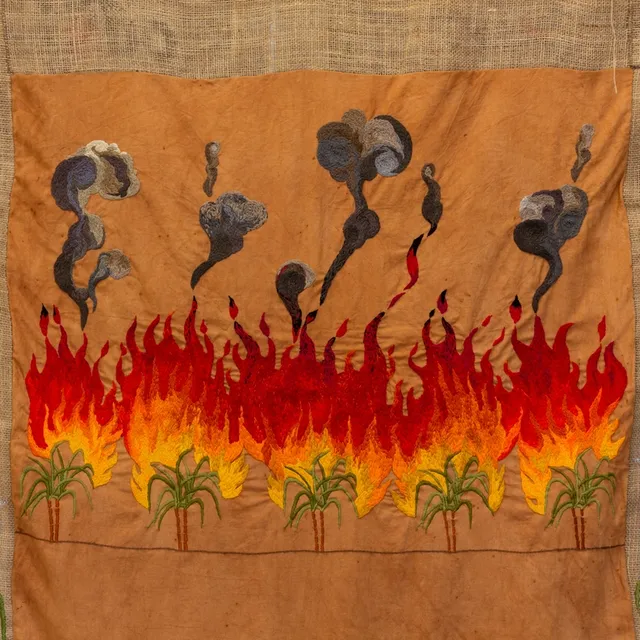“Angna Mein”
Quishile Charan and Zaiba Khan
23 July → 21 Aug 2022
Gallery

Angna Mein brings together the two craft-based practices of Quishile Charan and Zaiba Khan. This exhibition looks at the intimacy of craft within the Indo-Fijian context and how stories and history are passed down within families who make. The works in the show are a seeding of memories; each maker captures glimpses into their respective grandmother’s handicrafts, Zaiba with her Dadi’s crochet and Quishile with her Aaji’s textile dye work.
Angna Mein explores how collective memory across generations can be a site of embodied knowledge, with Quishile and Zaiba not being alive to see each of their grandmother’s actively making in their early lives. Both practitioners piece together their own craft through the stories that have been passed on, the photos they have and through their own friendship as two Indo-Fijian women who want to uphold the legacy of craft.
The physical loss of time with elders is re-defined, away from notions of absence and deprivation and instead reclaimed by moving through grief collectively through networks of family members, their stories, material exploration, experimenting, and for the love of making with one's own hands. A space is created in these moments that allows both grief and acknowledgement of how an inheritance of making has been passed down through the spirit and memory of both elders and ancestors.
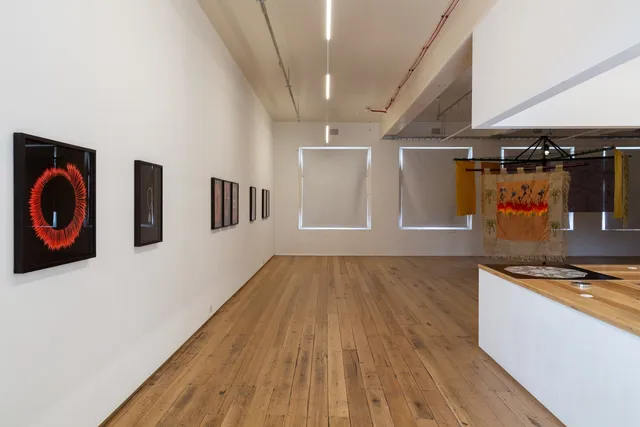
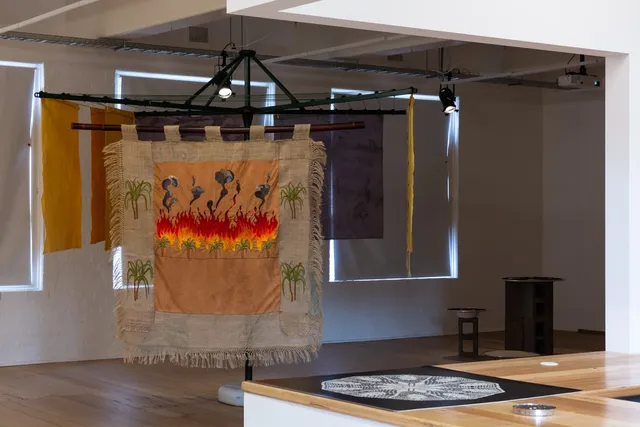
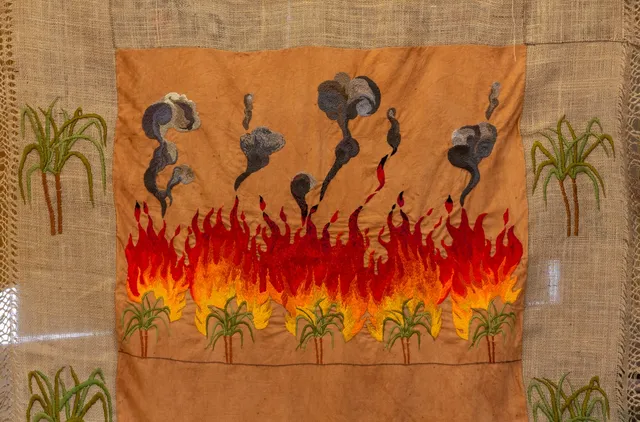
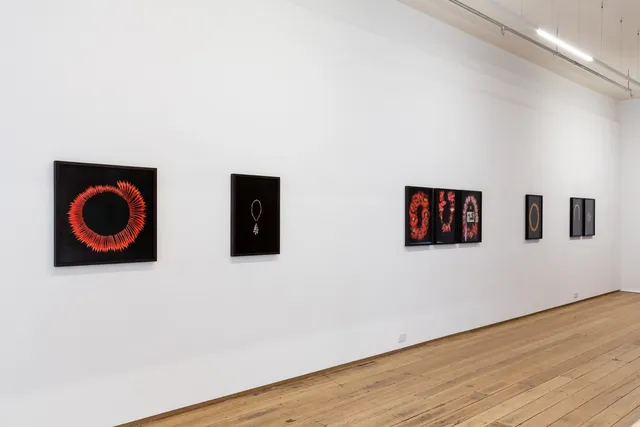
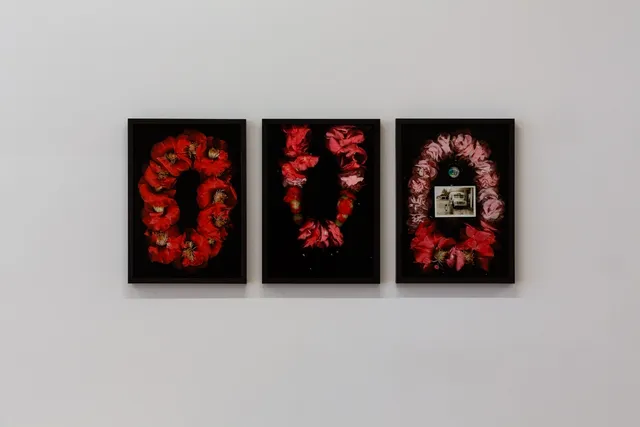
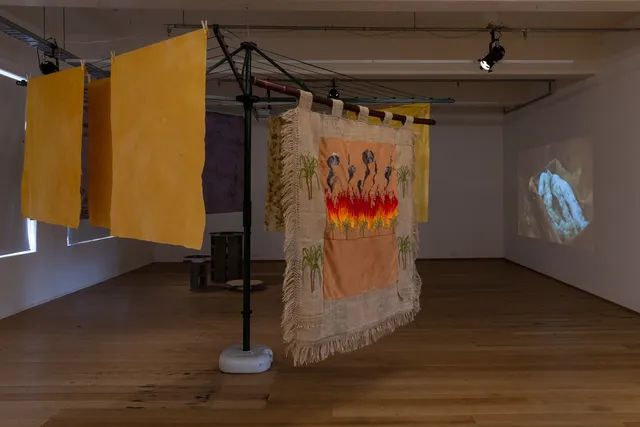


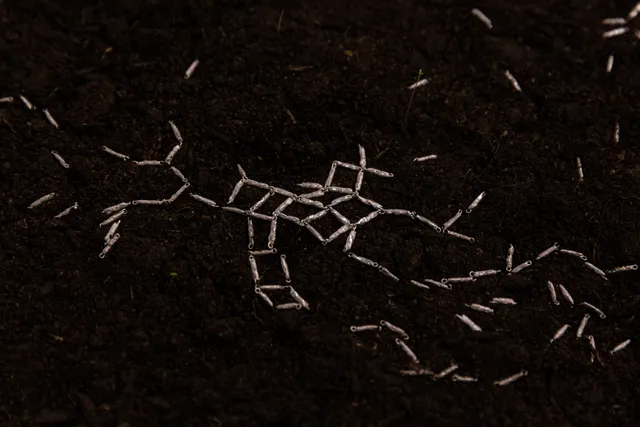
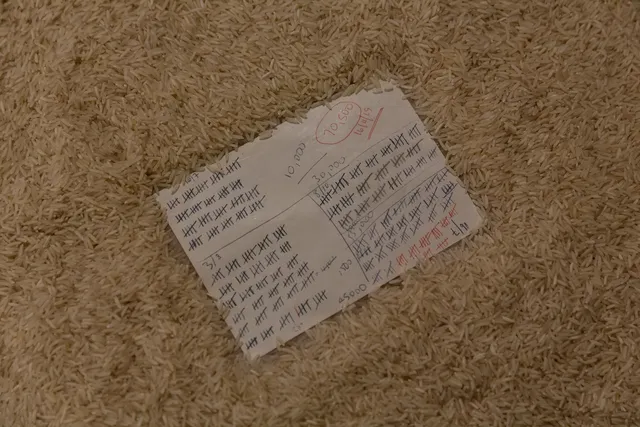
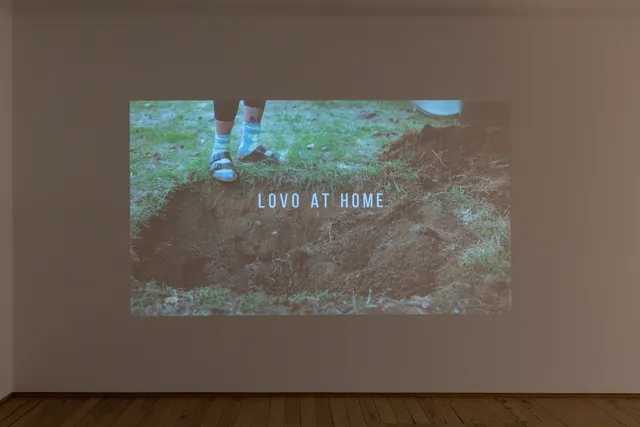
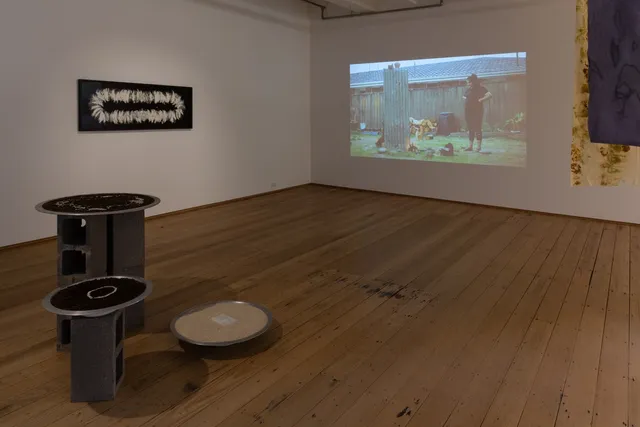
Quishile Charan is an Indo-Fijian textile maker, researcher and writer living and working in Aotearoa, New Zealand. Charan’s practice focuses on sustaining the shared cultural practices of craft, a knowledge system which she inherited through being her Aaji’s (paternal grandmother) namesake. As a woman and descendent of Girmit (indentured labour), Charan undertakes her responsibility to build counter-colonial narratives for Girmitiya women. Charan's practice looks at the multifarious forms of women's resistance against colonialism and patriarchy threaded throughout Fiji’s history. Through revaluing women's work, such as craft, which is often not considered “real labour” or a means to orate history, Charan explores how craft can function as contemporary forms of resistance to colonialism.
Zaiba Khan is a Muslim Indo-Fijian artist based in Narrm/Melbourne, Australia and born in Tāmaki Makaurau, Aotearoa/New Zealand. Khan’s practice is craft-based, engaging with object-making through gold and silversmithing, printmaking and textile. Khan seeks to translate the oral histories of her ancestors into visual language. Intricately detailed, labour intensive works are made using organic matter and sacred materials. As a descendent of Girmit (indentured labour), these materials hold particular significance, as does the labour of the body and hands. For Khan, making catalyses an innate ancestral muscle memory. Exploring the divine potential of the seed and its fruit, Khan sows them into her work as her ancestors did into the land, except this time with autonomy; in the hopes of creating portals for connection and healing.
